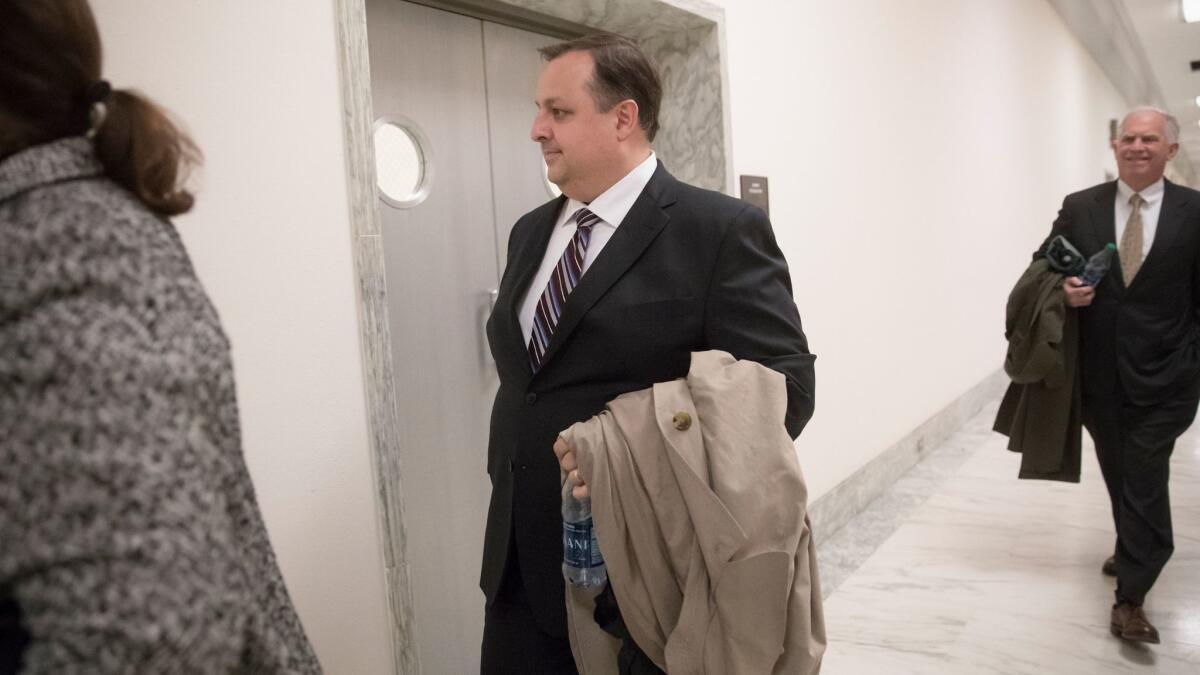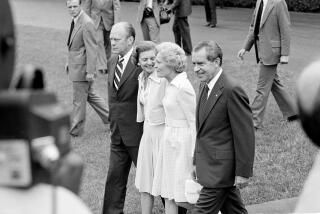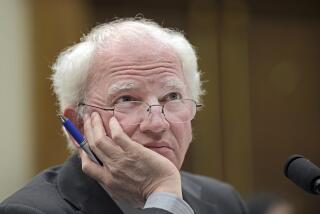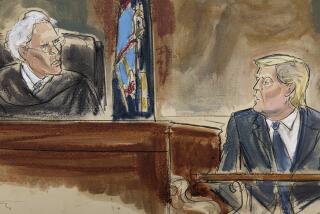Editorial: Trump’s biggest success: Proving the inadequacy of federal ethics laws

President Trump is a walking — well, golf cart-riding — conflict of interests. Even though he has given up active control of the billion-dollar Trump Organization, he still enjoys its enormous financial benefits, which has made the intersection between personal gain and public policy extraordinarily murky. In fact, if the hapless Trump administration has shown anything, it is that our current ethics laws are inadequate, and that Americans cannot know for sure whether a sitting president is making decisions based on what’s best for the country or what’s best for his own portfolio.
Walter Shaub, who is stepping down as chief of the Office of Government Ethics this week (his term has six more months but he quit early), joined the office in 2001 under President George W. Bush and was appointed director in 2013 by President Obama. He has tried to hold Trump and his appointees to a variety of ethical standards, but has often been stiff-armed. His six months of sparring with Trump, he said in a statement announcing his resignation, has made it “clear to me that we need improvements to the existing ethics program.” In an interview with the New York Times, he went further, calling the U.S. “pretty close to a laughingstock” on ethics and saying that Trump’s behavior “creates the appearance of profiting from the presidency.”
Given Trump’s unabashed flouting of the norms of transparency, it’s imperative that Congress remove its partisan blinders and consider several recommendations Shaub is making as he heads for the exit.
Shaub urges more independence for the chief ethics officer, and broader authority to oversee compliance within the executive branch, including limited subpoena power. He also recommends that presidential and vice-presidential candidates be required to submit their tax returns to the ethics office and the Federal Election Commission, and that conflict of interest standards be established for the president and vice president that would, among other things, bar them from having financial interests in entities that do business with the federal government. (This proposal may have been prompted by the opening of the Trump International Hotel in a government-owned building just down Pennsylvania Avenue from the White House).
Whether these are exactly the reforms the country needs is yet to be determined. There are, for instance, questions about whether it would be constitutional to make the release of one’s tax returns a condition for presidential eligibility. But this is a necessary debate.
It’s unlikely, of course, that the Trump apologists running Congress will do anything to tie the hands of the current Republican administration. But their cynical unwillingness to act shouldn’t stop Americans from demanding strong reforms that set clear lines for addressing ethical transgressions.
Follow the Opinion section on Twitter @latimesopinion or Facebook
More to Read
A cure for the common opinion
Get thought-provoking perspectives with our weekly newsletter.
You may occasionally receive promotional content from the Los Angeles Times.






